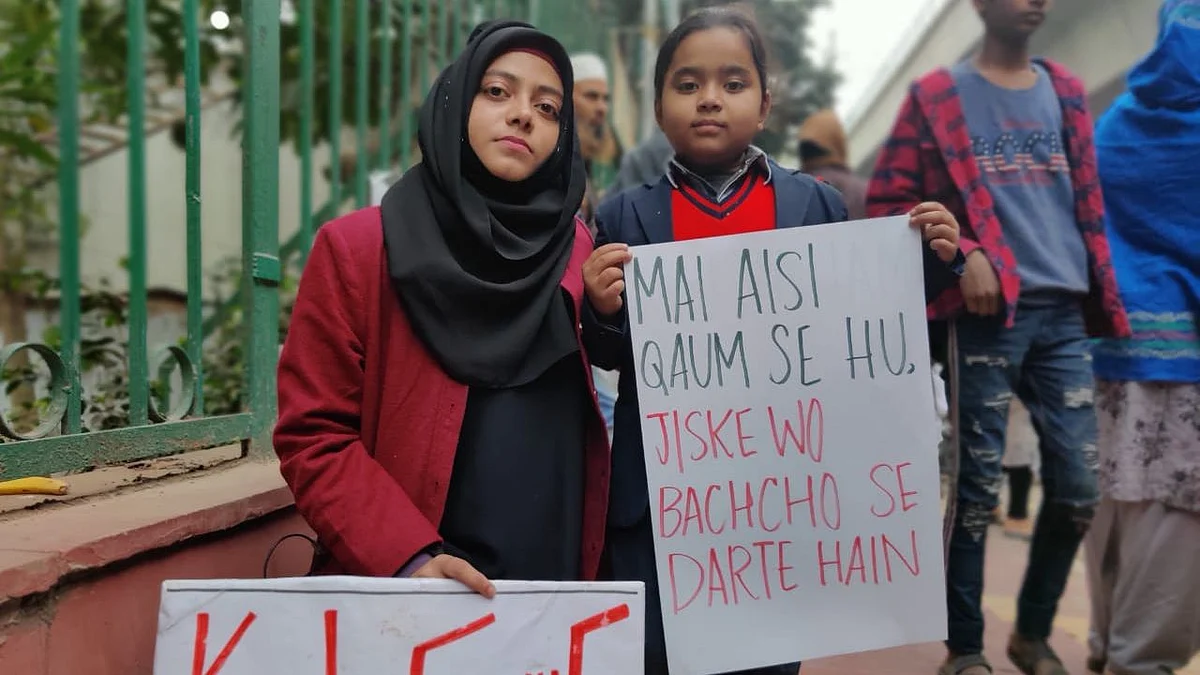Photos: Jamia Students Lean On Faiz & Jalib’s Poetry to Oppose CAA
Anthems of resistance found a place in posters held by students protesting CAA and police action in Jamia.

advertisement
(This story has been published from The Quint’s archives to mark Faiz Ahmad Faiz’s birth anniversary on 13 February.)
Words of revolutionary poets Faiz Ahmad Faiz and Habib jalib echoed on Delhi’s streets as Jamia students were back on the streets to protest the Citizenship Amendment Act and the proposed all-India National Register of Citizens on Tuesday, 17 December.
While some chanted “Azaadi”, others came together to lend their voice to Shalabh Shriram Singh’s “Inquilab Zindabad”.
Anthems of resistance also found place in placards held by students who demanded justice after the police crackdown in Jamia and Aligarh Muslim University on Sunday 15 December.
Buses were torched, and policemen and students were injured in a protest that the students claimed started off peacefully but was derailed by “outsiders” and “unreasonable, unjustifiable” police action.
Pakistan's firebrand poet Habib Jalib's words, simple yet ringing, had always defined dissent against the dictatorship of the Ayub Khan regime in his country. Years later, his words have become a symbol of resistance in India.
Calling for religious harmony and as a message against CAA-NRC, which many have said to be discriminating against the Muslim population in India, protest slogans quoted from Allama Iqbal’s patriotic song “Mazhab nehi sikhata aapas mein bair rakhna (Religion doesn’t teach you to become divided)."
Faiz’s revered poem and a call for freedom of speech, “Bol ke labh azaad hai tere”, also found a place with many resisting the two government policies.
Requests flooded Khansa Fahad, second year Btech student, as she stood in one corner of Jamia's Gate 8 with her black and red pen, etching out the words of these revolutionary poets. "We need to use the different talents of Jamia students to strengthen our movement."
"I am getting a lot of requests for Rahat Indori's famous sher 'Kisi ka baap ka Hidnostan thori hai' and Alam Iqbal's 'Mazhab nehi sikhata'. I am trying to make them as creatively as possible."
Many women, both students and alumni, marched together outside Jamia campus to show their solidarity on Tuesday. Each of them held a poster with poetry, slogans and songs that spoke of resistance and revolution.
(At The Quint, we question everything. Play an active role in shaping our journalism by becoming a member today.)